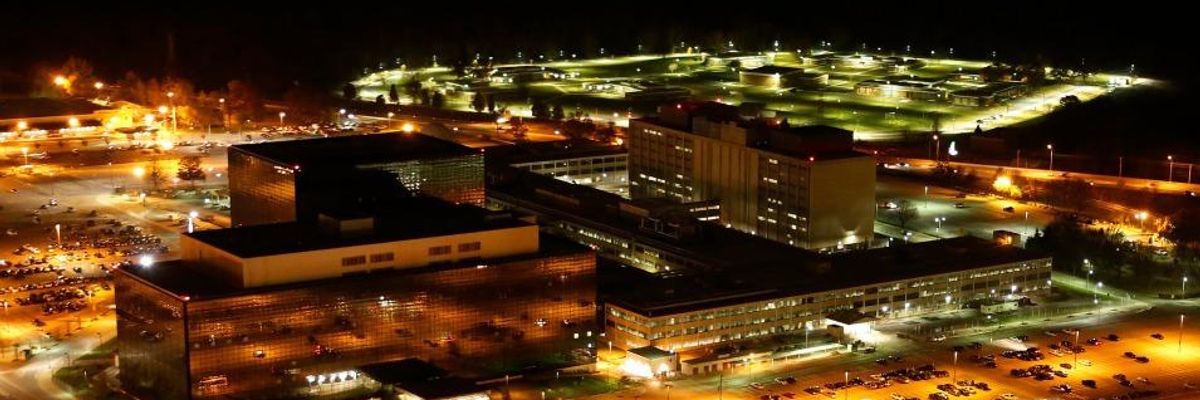Reiterating his prior ruling which found the U.S. government's surveillance of civilians' telephone records to be unconstitutional--"Orwellian," even--a federal judge on Monday ordered the National Security Agency to halt its bulk collection program.
"This court simply cannot, and will not, allow the government to trump the Constitution merely because it suits the exigencies of the moment," Judge Richard Leon wrote in his 43-page decision in the case Klayman v. Obama.
Though the ruling comes just 20 days before the NSA program is set to expire under orders set forth in the USA Freedom Act, civil liberties advocates were quick to celebrate the decision as a victory that may potentially have broad implications for the U.S. government's lesser-known surveillance operations.
On Twitter, NSA whistleblower Edward Snowden, who exposed the breadth of NSA spying, shared snippets of the ruling that he found particularly encouraging:
In the ruling, Leon explains why the order comes just weeks shy of the program's supposed expiration. He writes: "In my December 2013 Opinion, I stayed my order pending appeal in light of the national security interests at stake and the novelty of the constitutional issues raised. I did so with the optimistic hope that the appeals process would move expeditiously. However, because it has been almost two years since I first found that the NSA's Bulk Telephony Metadata Program likely violates the Constitution and because the loss of constitutional freedoms for even one day is a significant harm... I will not do so today."
In August of this year, the U.S. Court of Appeals reversed the 2013 ruling on the grounds that the plaintiff, conservative activist Larry Klayman, did not have the legal standing to challenge the constitutionality of the program. However, the complaint has been amended to meet the particulars of the case, allowing Leon on Monday to issue a preliminary injunction barring the NSA from further collection.
Though the order is technically limited to one plaintiff, David Greene, senior staff attorney and civil liberties director with the Electronic Frontier Foundation (EFF), said it is likely to impact other pending cases against government surveillance. "Leon's opinion and his refutation of the government's arguments, which are almost identical to the government's arguments in other mass surveillance cases, should be broadly influential in ongoing and future challenges to the NSA's suspicionless spying," Greene wrote.
Indeed, national security and human rights lawyer Jesselyn Radack noted that a key takeaway from Leon's argument is that the constitutionality of the call records program is more important than whether its been authorized by Congress.
And Jameel Jaffer, deputy legal director with the American Civil Liberties Union (ACLU), also said that the ruling is "very good" and may be even "more significant for undisclosed programs than for call-records program."

